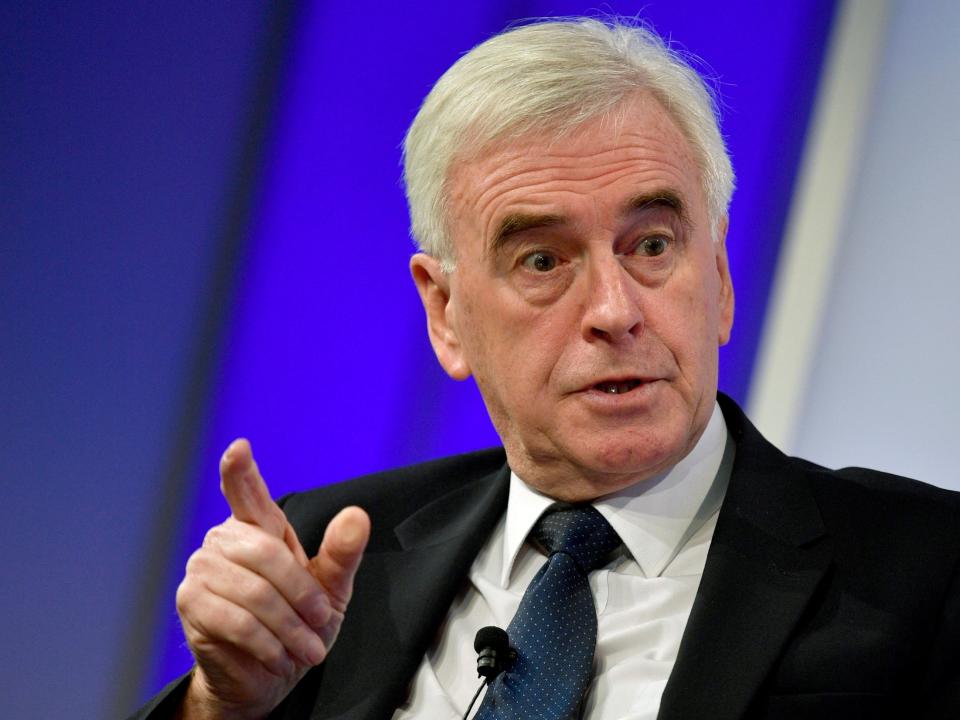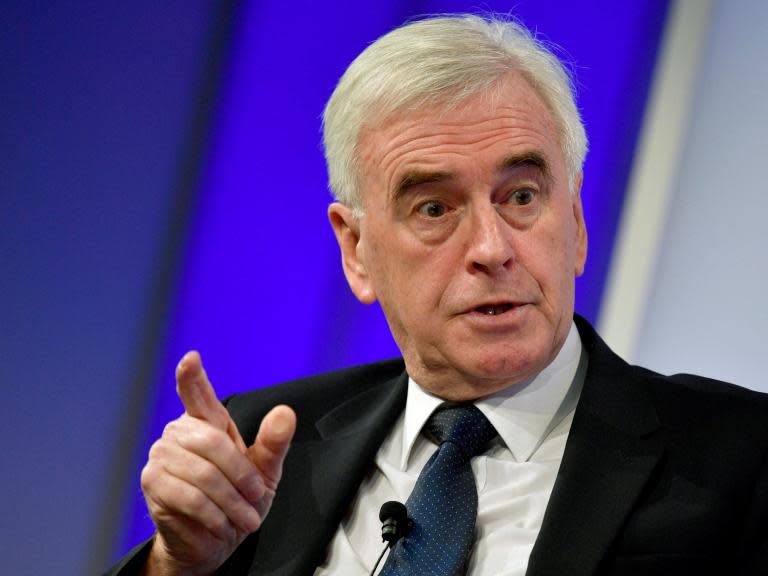John McDonnell’s promising comments show there is hope left for a Final Say referendum
A politician declaring that they are “moving closer” to something usually means very little. It is a form of words often deployed to suggest that they would like their interviewer, and readers, as appropriate, to form the view that they are indeed agreeing with them, while not actually committing themselves to anything remotely specific: a weaselly device.
With Labour and Brexit, though, the usual rules of political combat are altered. The slightest nuances in meaning from the lips of the leadership are carefully and deliberately measured, such is the party’s delicate balance, and crumbling unity, on Brexit. So when the shadow chancellor, John McDonnell, tells the Evening Standard that Labour is now “moving towards” a second referendum on Brexit, those few scant words carry more weight than they might usually.
It is, as they say, a “moment”. Even Jeremy Corbyn, the second most unconvincing Remainer in the 2016 referendum (behind Theresa May) has recently spoken more warmly about a Final Say for the British people.
It is easy to see where the pressure is coming form – within Labour and outside it. For a change, the left and the centre left is united in its militant opposition – to Brexit, and not just no-deal Brexit. While neither side might care to admit it, the vast majority of Momentum members and those sympathetic to the breakaway Independent Group of ex-Labour and former Tory MPs find themselves in perfect alignment on the issue. Even, whisper it, some on the far left believe that Brexit is more of an obstacle than an advantage in building a prosperous and fair society.
Labour activists are overwhelmingly pro-European as well as pro-Corbyn, and are making their views felt, as they did at conference last year. The threat of more MPs and members leaving the party must also be concentrating minds.
Events are also pushing Labour into backing a fresh Brexit vote. Since the fudge agreed at conference last year, the formula has been clear: Labour sought a general election, but, having failed to trigger one, a second referendum is now “on the table” along with any other options. Those options are, at best, illusory, such as the government voluntarily standing aside to allow Mr Corbyn to become prime minister or to lead the Brexit talks. An unlikely alliance, or even cooperation, between Mr Corbyn’s Labour Party and a Conservative government that despises it has come to nothing, despite the polite exchanges of letters between Mr Corbyn and the prime minister.
So, there are no other options, and Labour is left with the second referendum. It is time for Mr Corbyn and his colleagues to make the most of it and, if they can bear it, to accept the support of Chuka Umunna and the smaller opposition parties – the Greens, Liberal Democrats, SNP, Plaid Cymru – in bringing it about.
It could be highly useful for the Labour Party. First, it would seize the initiative from a divided and demoralised Conservative Party. Second, it would drive an ever deeper division within the Tory ranks, as so many MPs are determined to avoid a no-deal Brexit by any means possible. Third, it would place Mr Corbyn de facto at the head of a campaign to remain in the EU. It would attract a huge number of Remain, pro-European voters in the general election, when it arrives, who would otherwise be tempted to abstain, defect to the Independent Group or the Liberal Democrats and nationalists. In Scotland, especially, Labour needs some popular policies; without Scotland, Labour cannot win a general election anyway.
Tactically, and strategically, in the right hands, a second referendum would serve Labour as well as the national interest very well. It would preserve the Labour Party’s fragile unity, and halt the flow of despairing MPs to the Independent Group. The leadership would be fulfilling party policy as decided democratically at conference last autumn. Most of all, it would protect Labour people in areas where – whether they voted for Brexit or not – leaving the European Union will have the most devastating effect on jobs, house prices, local services and much else. Mr McDonnell’s instincts are correct; Mr Corbyn now needs to take the decisive step, offer some bold leadership and save the party and the country he loves. If he doesn’t, he will get a Tory Brexit; be blamed for facilitating it; and pay the price for – irony of ironies – betraying party policy as determined by conference and the membership. He is known to be stubborn, but surely not that stubborn?

 Yahoo News
Yahoo News 

